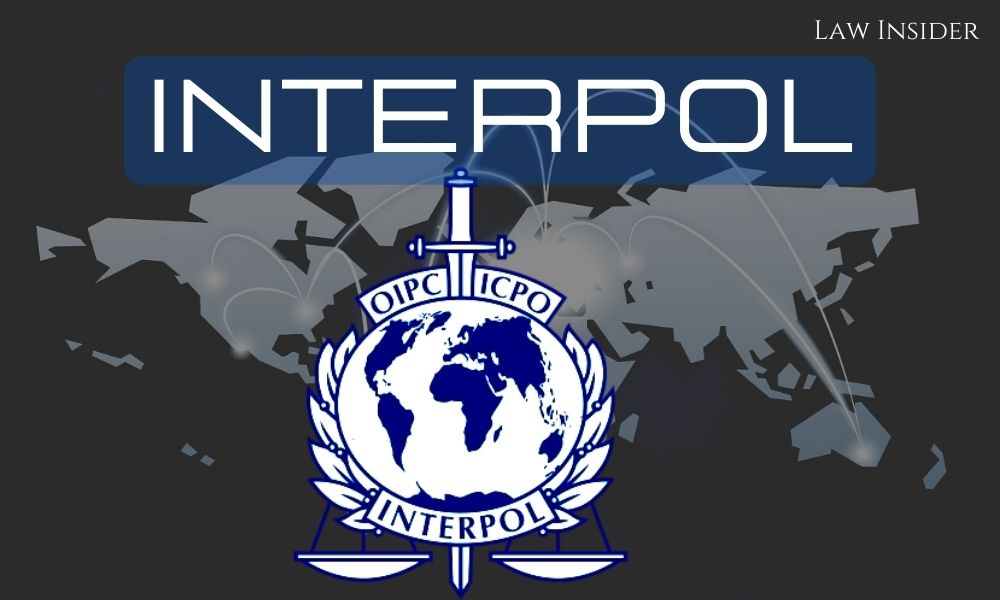Interpol
Our legal services are designed to help individuals and organizations navigate the complexities of Interpol’s operations, including dealing with notices such as Red, Blue, and other alerts. We offer expert advice on how Interpol works, assist with the removal of unjust notices, and provide representation in cases involving extradition and international criminal law.
Interpol, or the International Criminal Police Organization, was founded in 1923 and has played a critical role in promoting international police collaboration and crime prevention. With its origins in the International Criminal Police Commission (ICPC), the organization grew through time, eventually adopting the name “Interpol” in 1956. With 194 member nations working together to combat transnational crime and terrorism, it is now the world’s largest international police organization.
 Brief History of Interpol
Brief History of Interpol
The first worldwide Criminal Police Congress in Monaco in 1914 dreamed of the notion of establishing a worldwide network to share criminal intelligence. However, the ICPC was not officially created until 1923 in Vienna, Austria, under the supervision of Dr. Johannes Schober, then President of the Austrian police. Following World War II, the ICPC transferred its headquarters to Paris in 1946, before moving to its current home in Lyon, France, in 1989.
Interpol: Overview of the Organization’s Mission and Objectives
The objective of Interpol is to promote international police cooperation and to assist member nations in their efforts to combat crime. By promoting information sharing, providing investigative and analytical support, and giving specialized training to law enforcement authorities, the organization hopes to improve global security and maintain the rule of law. Interpol focuses on countering international crime in a variety of forms, including terrorism, organized crime, human trafficking, cybercrime, drug trafficking, and environmental crime. Interpol, with its worldwide reach, acts as a critical center for global law enforcement collaboration and coordination.
Structure and Membership of the Interpol
The organizational structure of Interpol is intended to allow effective collaboration among its member nations and to speed decision-making processes, resulting in an efficient response to global security concerns.
Organization Structure
- General Assembly: The General Assembly is Interpol’s supreme governing body, consisting of representatives from each member country. It meets annually to discuss and decide on major policy issues, approve the budget, and elect members of the Executive Committee. Each member country has one vote, and decisions are typically reached by a two-thirds majority.
- Executive Committee: The Executive Committee is responsible for overseeing the implementation of the General Assembly’s decisions and providing guidance on organizational affairs. It is composed of the President, three Vice-Presidents, and nine delegates representing different regions. Members are elected by the General Assembly for a four-year term.
- General Secretariat: Headquartered in Lyon, France, the General Secretariat serves as the central administrative body of Interpol, responsible for implementing the organization’s activities and programs. It is led by the Secretary-General, who is appointed by the General Assembly for a five-year term. The Secretariat comprises several directorates that manage various aspects of Interpol’s operations, including police services, capacity building, and partnerships.
- National Central Bureaus (NCBs): Each member country maintains a National Central Bureau that serves as a liaison between the country’s law enforcement agencies and Interpol’s General Secretariat. NCBs play a critical role in facilitating information exchange and coordinating national and international investigations.
Interpol Member Countries
With 196 member countries spanning five continents, Interpol is the largest international police organization in the world. Its membership includes countries from diverse cultural, political, and legal backgrounds, enabling a broad range of perspectives and expertise to be brought together in the fight against transnational crime.
Interpol was founded in 1923 as the International Criminal Police Commission (ICPC). The initial member countries included Austria, Czechoslovakia, Denmark, Egypt, France, Germany, Greece, Hungary, Italy, Japan, Latvia, Netherlands, Poland, Romania, Sweden, Switzerland, Turkey, the United States, and Yugoslavia.
The most recent addition to Interpol’s membership is Palau, which joined on November 28, 2023, becoming the 196th member country. This milestone was celebrated during Interpol’s 91st General Assembly in Vienna, Austria.
Cooperation with Other International Organizations
Interpol works closely with numerous international organizations to enhance its capabilities and extend its reach in combating global crime. Some of its key partners include the United Nations, the European Union, the African Union, the Organization of American States, the International Monetary Fund, and the World Customs Organization. Interpol also collaborates with various non-governmental organizations and private sector entities to address specific issues, such as wildlife trafficking, cybercrime, and intellectual property theft. This collaborative approach helps maximize resources, share expertise, and strengthen international efforts to uphold the rule of law and promote global security.
Interpol’s Functions and Operations
Interpol plays a crucial role in fostering international police cooperation by providing a platform for member countries to share criminal intelligence and collaborate on cross-border investigations. The organization employs a range of tools and services to support law enforcement agencies worldwide in their efforts to combat transnational crime.
Criminal Intelligence and Information Sharing
One of Interpol’s primary functions is to facilitate the exchange of criminal intelligence among its member countries. This is achieved through its secure global communications network, I-24/7, which allows National Central Bureaus (NCBs) and authorized law enforcement agencies to access and share vital data in real time. Interpol maintains several databases containing information on criminals, stolen and lost travel documents, stolen vehicles, firearms, and other crime-related data. These databases are continuously updated and can be accessed by law enforcement officials around the world, helping them identify, locate, and apprehend criminals more effectively.
Issuance of Notices
Interpol issues various types of notices to assist member countries in tracking and apprehending criminals, locating missing persons, and providing warnings about potential threats. The most well-known notices are:
- Red Notice: global warning that requests the arrest and extradition of a wanted individual, typically for prosecution or to fulfill a previously imposed term. While not an international arrest warrant, a Red Notice can be used to track down and detain offenders across boundaries. Also discover how to remove Red Notice;
- Blue Notice: A Blue Notice is issued to collect additional information about a person’s identity, location, or activities in relation to a crime. It can also be used to trace the movements of criminals or obtain information about individuals who are not necessarily wanted for arrest but may be of interest to law enforcement;
- Green Notice: A Green Notice serves as a warning to member countries about individuals who have committed criminal offenses and are considered a potential threat to public safety. This notice helps countries take preventive measures to protect their citizens from harm;
- Yellow Notice: A Yellow Notice is issued to help locate missing persons, especially minors, or to identify persons who are unable to identify themselves due to physical or mental disabilities. These notices aid law enforcement agencies and families in finding and safeguarding vulnerable individuals.
Interpol alerts are critical for international cooperation and coordination among law enforcement authorities. Interpol assists member nations in combating transnational crime and ensuring global security by providing a venue for sharing information and issuing alerts.
Other Interpol Notice Types
In addition to the primary notices mentioned earlier, Interpol also issues several other notice types to address specific situations or requests:
- Black Notice: A Black Notice is used to seek information on unidentified bodies, helping authorities determine the identity of the deceased and potentially solve criminal cases.
- Orange Notice: An Orange Notice is issued to warn law enforcement agencies, public entities, and international organizations about potential threats or events that pose a risk to public safety, such as the discovery of dangerous materials or criminal methodologies.
Support for Law Enforcement Agencies
Interpol provides various forms of support to its member countries, assisting law enforcement agencies in their efforts to combat transnational crime. This support includes deploying specialized teams, providing operational and analytical assistance, and coordinating joint operations between multiple countries.
Cybercrime, Counter-terrorism, and Organized Crime Operations
Interpol plays an active role in addressing major global security threats, such as cybercrime, terrorism, and organized crime. The organization helps member countries build their capacity to prevent, detect, and investigate these crimes by sharing intelligence, providing operational support, and coordinating multinational efforts.
Training and Capacity Building in Interpol
To enhance the skills and knowledge of law enforcement professionals, Interpol offers a wide range of training programs and capacity-building initiatives. These programs cover various topics, including cybercrime investigation, counter-terrorism, forensic science, and border management. By offering specialized training and resources, Interpol enables member countries to better address the challenges posed by transnational crime and improve the overall effectiveness of their law enforcement agencies.
Interpol’s training programs often involve partnerships with other international organizations, academic institutions, and private sector entities to ensure that participants receive the most up-to-date information and best practices in their respective fields. Additionally, Interpol’s capacity-building initiatives help member countries strengthen their national law enforcement infrastructure, providing them with the necessary tools and resources to combat crime more effectively.
In summary, Interpol plays a critical role in fostering international police cooperation and supporting member countries in their efforts to combat transnational crime. Through its various functions and operations, including criminal intelligence sharing, issuance of notices, provision of operational support, and training and capacity-building initiatives, Interpol helps create a safer and more secure world for all.


